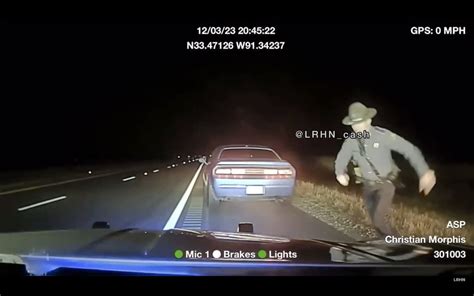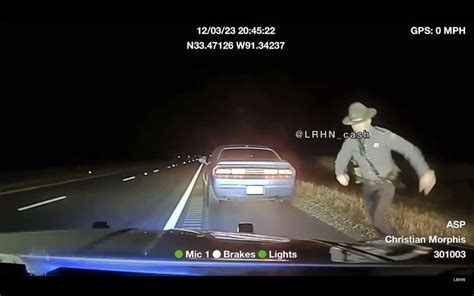
A multi-million dollar fleet of luxury supercars, including two Ferraris and two McLarens, has been seized by police in connection to a large-scale pharmaceutical fraud investigation in Ohio. The alleged scheme involved billing insurance companies for medications that were never dispensed, netting the perpetrators an illicit fortune used to purchase the high-performance vehicles and other extravagant assets.
Ohio authorities have confiscated a stable of high-end sports cars as part of an ongoing investigation into a widespread pharmaceutical fraud operation. The vehicles, seized from individuals suspected of masterminding the scheme, include two Ferraris – a Ferrari 488 Spider and a Ferrari 812 Superfast – and two McLarens. The investigation centers around allegations that the individuals fraudulently billed insurance companies for prescription medications that patients never received, amassing substantial illegal profits in the process. These ill-gotten gains were then allegedly used to fund lavish lifestyles, including the acquisition of the seized supercars.
“The Ohio Attorney General’s Office, along with our law enforcement partners, is committed to追查 and prosecuting those who seek to defraud our healthcare system,” stated a spokesperson for the Attorney General’s office. “This seizure sends a clear message that we will aggressively pursue those who engage in these types of criminal activities and hold them accountable for their actions. We will seize their assets and return the money to the insurance companies and, ultimately, the consumers who were victimized.”
The investigation, which has been ongoing for several months, has uncovered a complex network of pharmacies and individuals allegedly involved in the fraudulent billing practices. Investigators believe that the scheme involved submitting false claims to insurance companies for medications, often high-cost specialty drugs, that were never actually dispensed to patients. By inflating the number of prescriptions and billing for medications that were not provided, the individuals were able to generate significant profits. The extent of the fraud is still being determined, but authorities estimate that the losses could run into the millions of dollars.
The seized vehicles represent a significant blow to the alleged perpetrators of the fraud. The Ferrari 488 Spider is a high-performance convertible sports car known for its powerful engine and exhilarating driving experience. The Ferrari 812 Superfast is an even more potent grand tourer, boasting a V12 engine and breathtaking acceleration. The McLarens, likely models such as the 720S or 570S, are also renowned for their speed, handling, and advanced technology. The combined value of the seized vehicles is estimated to be well over $1 million, reflecting the scale of the alleged fraud.
The investigation highlights the growing problem of pharmaceutical fraud in the United States. According to the National Health Care Anti-Fraud Association (NHCAA), healthcare fraud costs the nation an estimated $68 billion annually. Pharmaceutical fraud, in particular, is a significant concern, as it can involve a wide range of schemes, including billing for phantom prescriptions, substituting generic drugs for brand-name medications and billing for the more expensive brand-name version, and submitting fraudulent claims for medications that are not medically necessary.
The Ohio Attorney General’s Office is working closely with federal and state law enforcement agencies to investigate the case. The investigation is ongoing, and authorities have not ruled out the possibility of additional arrests and seizures. The individuals implicated in the scheme face a variety of charges, including fraud, money laundering, and conspiracy. If convicted, they could face lengthy prison sentences and significant financial penalties.
The seizure of the supercars serves as a stark reminder that law enforcement agencies are increasingly focused on targeting the assets of individuals involved in financial crimes. Asset forfeiture laws allow authorities to seize property that is believed to be derived from or used in the commission of a crime. This can include cash, real estate, vehicles, and other assets. The proceeds from the sale of forfeited assets are often used to fund law enforcement activities and to compensate victims of crime.
This case is also a cautionary tale for insurance companies. Insurers are increasingly under pressure to control costs, but they must also remain vigilant in detecting and preventing fraud. By implementing robust fraud detection programs and working closely with law enforcement agencies, insurers can help to protect themselves and their customers from becoming victims of pharmaceutical fraud.
The investigation is expected to continue for several months as authorities gather evidence and build their case. The seized supercars will be held as evidence and could eventually be sold at auction, with the proceeds used to compensate the victims of the fraud.
This case underscores the importance of reporting suspected fraud to the authorities. Anyone with information about pharmaceutical fraud or other types of healthcare fraud is encouraged to contact the Ohio Attorney General’s Office or the National Health Care Anti-Fraud Association. By working together, law enforcement agencies, insurance companies, and the public can help to combat healthcare fraud and protect the integrity of the healthcare system.
The case also has implications for the pharmaceutical industry as a whole. Pharmaceutical companies have a responsibility to ensure that their products are used appropriately and that they are not being diverted for fraudulent purposes. By implementing strong internal controls and working closely with pharmacies and other healthcare providers, pharmaceutical companies can help to prevent pharmaceutical fraud.
The investigation is a complex and multifaceted undertaking, involving a significant amount of resources and expertise. The Ohio Attorney General’s Office is committed to pursuing the case to its fullest extent and bringing those responsible to justice. The seizure of the supercars is just one step in that process.
The case highlights the sophistication and complexity of modern financial crimes. Criminals are increasingly using sophisticated techniques to conceal their activities and launder their ill-gotten gains. Law enforcement agencies must stay one step ahead by investing in advanced technologies and training and by working closely with other agencies to share information and coordinate investigations.
The Ohio Attorney General’s Office has a long history of fighting fraud and protecting consumers. The office has a dedicated team of investigators and prosecutors who specialize in handling complex financial crimes. The office also works closely with other state and federal agencies to combat fraud and protect the public.
The seizure of the supercars is a significant victory for law enforcement and a warning to those who would seek to defraud the healthcare system. The Ohio Attorney General’s Office is committed to continuing its fight against fraud and protecting the interests of Ohio consumers.
The impact of pharmaceutical fraud extends far beyond financial losses. Fraudulent schemes can undermine the integrity of the healthcare system, erode public trust, and put patients at risk. When individuals are able to obtain medications through fraudulent means, they may be able to sell those medications on the black market, where they could be used to treat conditions for which they are not intended. This can lead to serious health consequences and even death.
In addition, pharmaceutical fraud can drive up the cost of healthcare for everyone. When insurance companies are forced to pay for fraudulent claims, they pass those costs on to consumers in the form of higher premiums. This makes it more difficult for people to afford the healthcare they need.
For all these reasons, it is essential that law enforcement agencies, insurance companies, and the public work together to combat pharmaceutical fraud. By reporting suspected fraud and by supporting efforts to prevent it, we can help to protect the integrity of the healthcare system and ensure that everyone has access to affordable, quality healthcare.
The seized supercars, symbols of luxury and excess, now stand as a testament to the greed and dishonesty that can drive individuals to commit fraud. Their confiscation serves as a powerful deterrent to others who may be tempted to engage in similar schemes. The message is clear: crime does not pay, and those who seek to profit from fraud will be held accountable. The investigation is a testament to the dedication and hard work of law enforcement professionals who are committed to protecting the public from financial crimes. Their efforts help to ensure that the healthcare system remains fair, honest, and accessible to all. The focus remains on unraveling the full scope of the conspiracy, identifying all those involved, and recovering as much of the stolen funds as possible. This is not just about punishing the perpetrators; it is about restoring justice to the victims and deterring future fraud. The seizure of the vehicles is a visual representation of the progress being made in that pursuit.
The intricacies of the alleged pharmaceutical fraud operation are still being pieced together by investigators, but preliminary findings suggest a sophisticated and well-organized scheme. This level of complexity requires a coordinated response from multiple agencies, including state and federal law enforcement, regulatory bodies, and insurance companies. The collaboration between these entities is crucial to effectively investigate and prosecute these types of crimes. The success of this investigation will depend on the ability of these agencies to share information, coordinate their efforts, and leverage their respective expertise. The ultimate goal is not only to bring the perpetrators to justice but also to dismantle the entire network that enabled the fraud to occur. This may involve tracing the flow of funds, identifying shell companies, and interviewing witnesses and informants.
The legal proceedings that will follow the investigation are expected to be lengthy and complex. The defendants will likely face a range of charges, including fraud, money laundering, and conspiracy. They will have the right to legal representation, and the prosecution will have the burden of proving their guilt beyond a reasonable doubt. The case will likely involve a significant amount of documentary evidence, including financial records, insurance claims, and pharmacy records. Expert witnesses may be called to testify about the complexities of pharmaceutical billing and fraud detection. The outcome of the case will have significant implications for the defendants, as well as for the broader fight against healthcare fraud. A successful prosecution will send a strong message that these types of crimes will not be tolerated.
The impact of this case extends beyond the immediate victims of the fraud. Pharmaceutical fraud can have a ripple effect throughout the healthcare system, leading to higher costs, reduced access to care, and a loss of public trust. When individuals engage in fraudulent schemes, they undermine the integrity of the system and make it more difficult for honest healthcare providers to operate. This can lead to a decline in the quality of care and a erosion of confidence in the healthcare system. For these reasons, it is essential that we remain vigilant in our efforts to detect and prevent pharmaceutical fraud. This requires a multi-faceted approach that includes strong law enforcement, effective regulation, and increased public awareness. By working together, we can protect the integrity of the healthcare system and ensure that everyone has access to the care they need. The seizure of the supercars is a reminder that law enforcement is committed to pursuing those who engage in fraud and holding them accountable for their actions. It is a victory for the victims of the fraud and a warning to those who may be tempted to engage in similar schemes.
The sheer audacity of using fraudulently obtained funds to purchase luxury supercars underscores the level of greed and disregard for the law that characterized this alleged scheme. These vehicles, symbols of wealth and status, became tangible evidence of the illicit activities that fueled their acquisition. The confiscation of these assets sends a clear message that law enforcement will aggressively pursue and seize the fruits of criminal enterprises. It also highlights the importance of asset forfeiture laws as a tool for deterring crime and compensating victims. The funds recovered from the sale of seized assets can be used to support law enforcement efforts, fund victim compensation programs, and restore stolen funds to the healthcare system. The seizure of the supercars is a significant step in the process of holding the perpetrators accountable and ensuring that they do not profit from their crimes.
The investigation serves as a reminder of the vulnerabilities that exist within the pharmaceutical billing system. Fraudsters are constantly seeking new ways to exploit these vulnerabilities and profit from illegal schemes. It is essential that insurance companies, pharmacies, and healthcare providers remain vigilant in their efforts to detect and prevent fraud. This requires a proactive approach that includes implementing robust internal controls, monitoring billing patterns, and educating employees about fraud prevention. It also requires close collaboration with law enforcement agencies to investigate and prosecute suspected fraud. By working together, we can strengthen the integrity of the pharmaceutical billing system and protect it from those who seek to exploit it.
The case also raises questions about the role of oversight and regulation in preventing pharmaceutical fraud. Regulatory agencies have a responsibility to ensure that pharmacies and healthcare providers are complying with all applicable laws and regulations. This includes conducting regular audits and inspections, investigating complaints of fraud, and taking enforcement actions against those who violate the law. Strong oversight and regulation are essential to deterring fraud and protecting the public. It is important that regulatory agencies have the resources and authority they need to effectively carry out their responsibilities.
The investigation is a complex and ongoing process, and there are still many unanswered questions. However, the seizure of the supercars represents a significant milestone in the case. It is a tangible sign of progress and a reminder that law enforcement is committed to pursuing justice. As the investigation continues, authorities will continue to gather evidence, interview witnesses, and trace the flow of funds. The ultimate goal is to bring all those involved in the scheme to justice and to recover as much of the stolen funds as possible. The case serves as a warning to those who may be tempted to engage in pharmaceutical fraud: your actions will be uncovered, and you will be held accountable for your crimes.
The public has a vital role to play in the fight against pharmaceutical fraud. Anyone with information about suspected fraud is encouraged to report it to the authorities. This can be done anonymously, and it can make a significant difference in helping to bring fraudsters to justice. By reporting suspected fraud, you are helping to protect the integrity of the healthcare system and ensure that everyone has access to affordable, quality care. The fight against pharmaceutical fraud is a shared responsibility, and we all have a role to play. The seizure of the supercars is a reminder that law enforcement is committed to pursuing those who engage in fraud, but they cannot do it alone. They need the help of the public to identify and report suspected fraud. Together, we can make a difference.
The sophisticated nature of pharmaceutical fraud schemes necessitates a continuous evolution in investigative techniques and preventative measures. Law enforcement agencies and regulatory bodies must invest in advanced technologies and training to stay ahead of the curve. This includes data analytics capabilities to identify suspicious billing patterns, forensic accounting skills to trace the flow of illicit funds, and expertise in cybercrime to combat online pharmacies and fraudulent websites. Furthermore, increased collaboration between international agencies is crucial to address cross-border pharmaceutical fraud operations. The fight against pharmaceutical fraud requires a global approach to effectively dismantle criminal networks and protect the integrity of the healthcare system worldwide. The seizure of the supercars serves as a reminder of the financial incentives that drive these criminal activities and the importance of pursuing asset forfeiture as a means of deterring future fraud.
Frequently Asked Questions (FAQ):
1. What exactly is pharmaceutical fraud, and how does it affect consumers?
Pharmaceutical fraud encompasses a range of illegal activities related to prescription drugs, including billing for medications never dispensed, submitting false claims to insurance companies, and substituting generic drugs while billing for brand-name medications. This fraud drives up healthcare costs for everyone, leading to higher insurance premiums and potentially reduced access to care. It also undermines the integrity of the healthcare system and erodes public trust. The seized supercars are a result of investigation in pharmaceutical fraud.
2. What specific assets were seized in this Ohio case, and what is their estimated value?
In this Ohio case, authorities seized two Ferraris (a 488 Spider and an 812 Superfast) and two McLarens. The combined value of these luxury supercars is estimated to be well over $1 million.
3. What are the potential legal consequences for individuals involved in pharmaceutical fraud?
Individuals involved in pharmaceutical fraud can face a variety of charges, including fraud, money laundering, and conspiracy. If convicted, they could face lengthy prison sentences, significant financial penalties, and forfeiture of assets.
4. What steps can insurance companies take to prevent pharmaceutical fraud?
Insurance companies can implement robust fraud detection programs, monitor billing patterns, conduct audits of pharmacies and healthcare providers, and work closely with law enforcement agencies to investigate suspected fraud. They should also educate their employees and customers about fraud prevention.
5. How can members of the public report suspected pharmaceutical fraud?
Members of the public can report suspected pharmaceutical fraud to the Ohio Attorney General’s Office, the National Health Care Anti-Fraud Association (NHCAA), or other law enforcement agencies. Reports can often be made anonymously. It is important to provide as much detail as possible about the suspected fraud, including the names of individuals involved, the dates and locations of the alleged fraud, and any supporting documentation.









